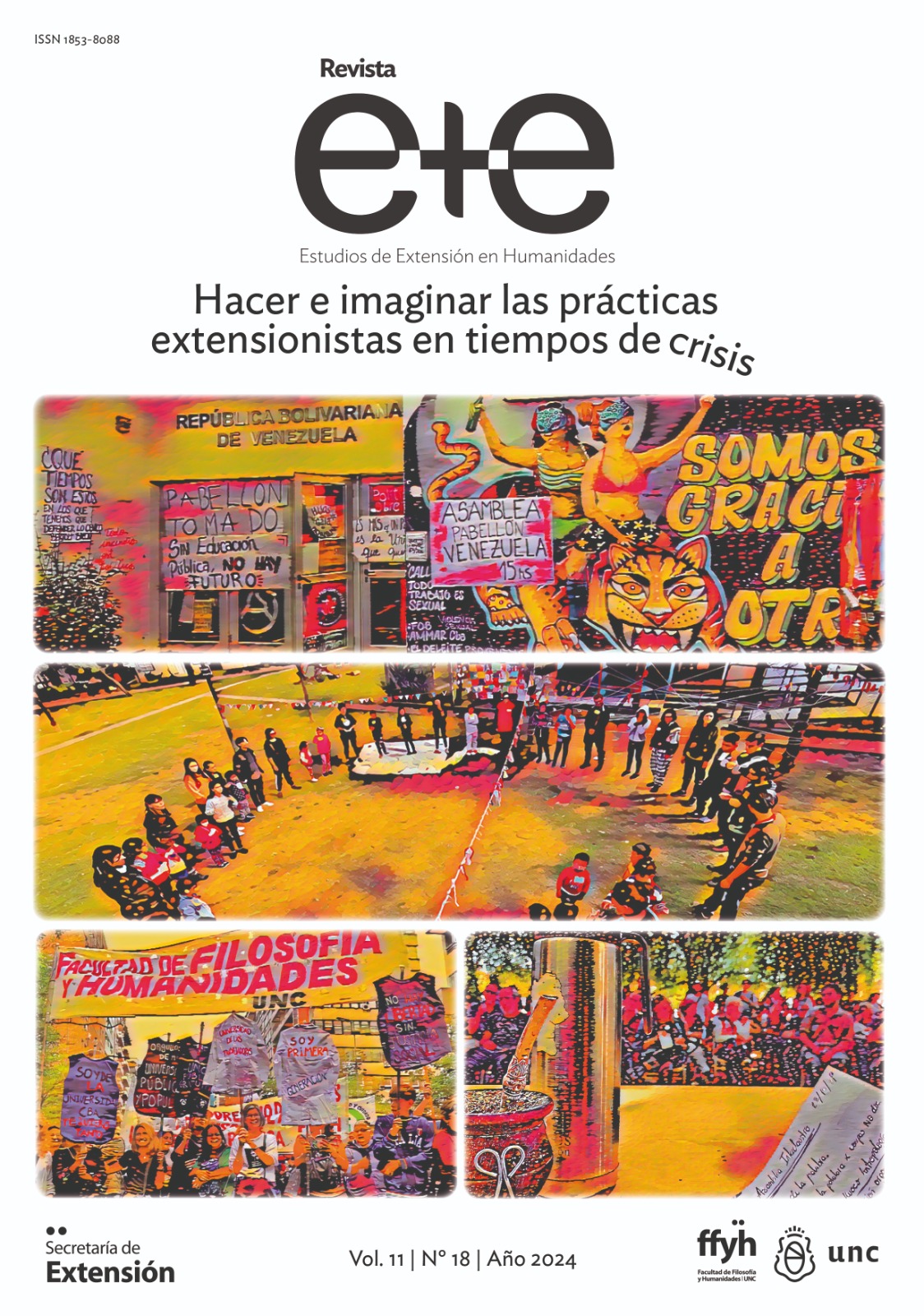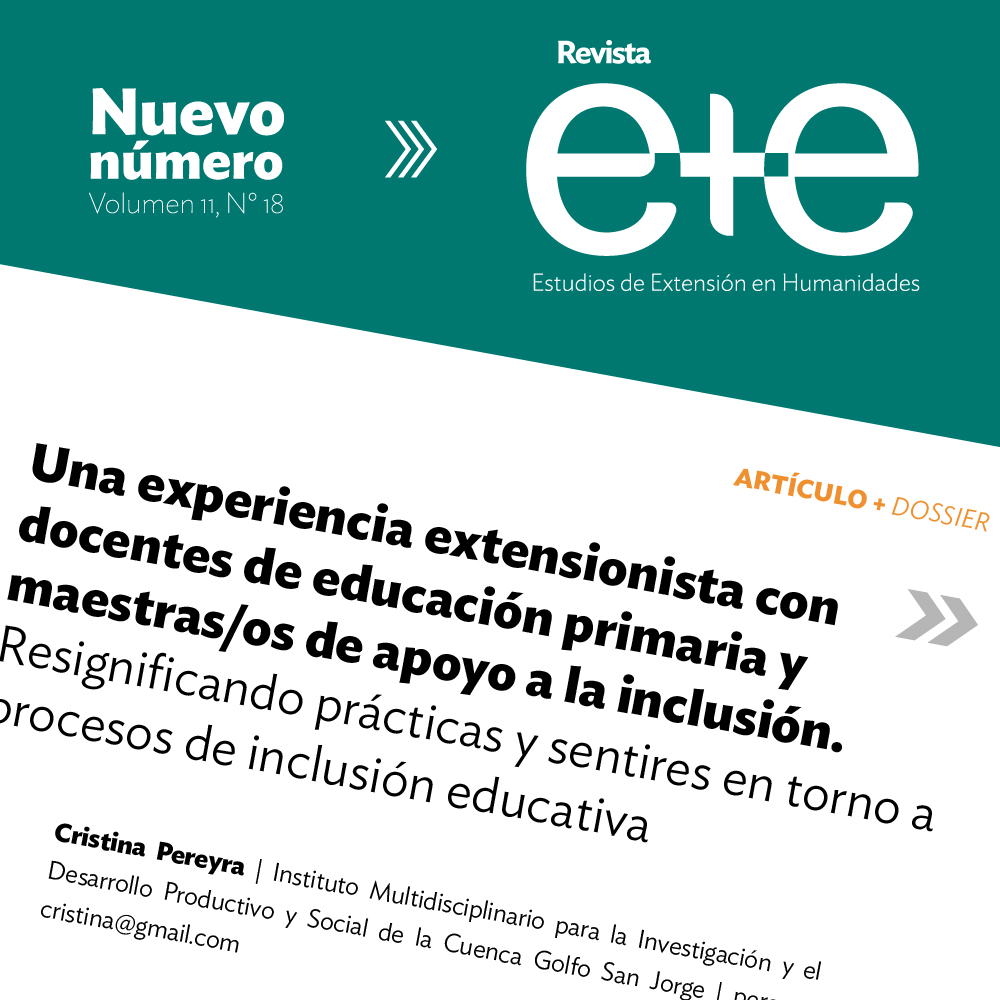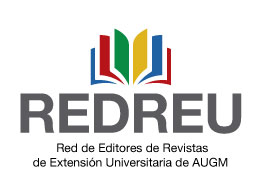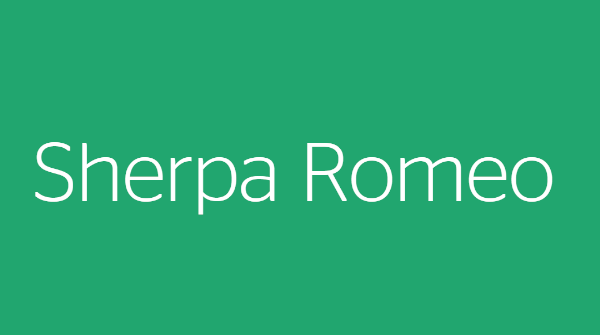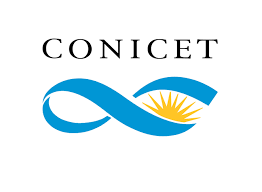PRÓXIMA CONVOCATORIA
Volumen 12, n° 19, junio 2025
*Recordamos que la Convocatoria está abierta a contribuciones de temática libre que deben encuadrarse en alguna de las Secciones de la revista.
DOSSIER: Disputar libertades, garantizar derechos: tareas de la extensión universitaria
Cierre de la convocatoria: 17 de marzo de 2025
PRÓRROGA: martes 1 de abril
Envío de artículos: revistaemase@gmail.com
Read more about PRÓXIMA CONVOCATORIA
